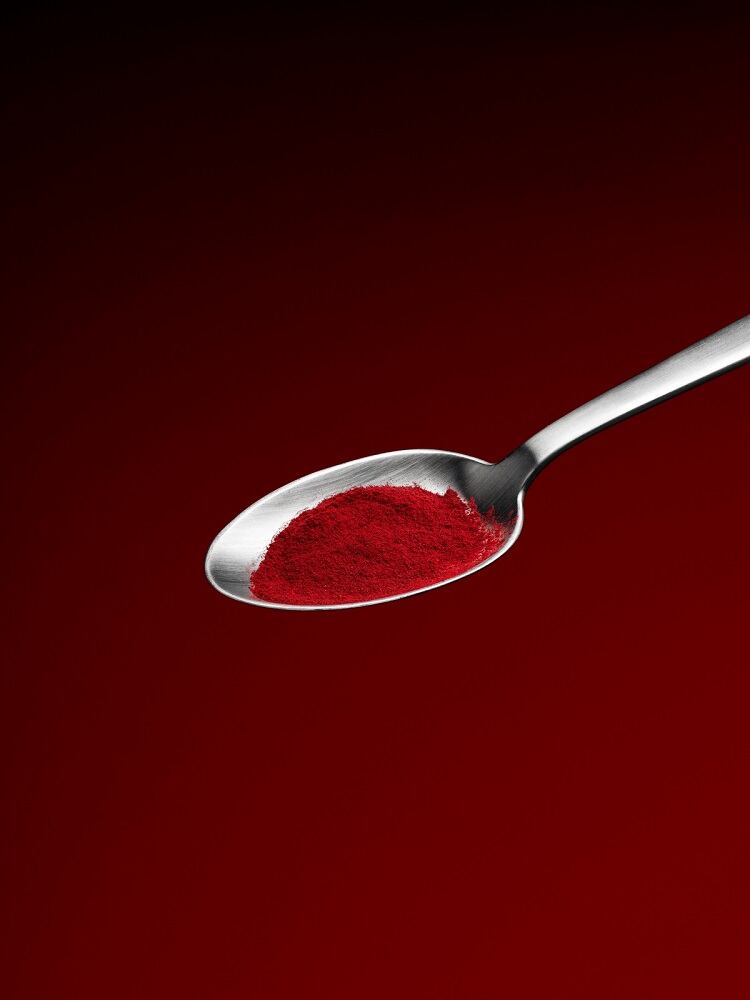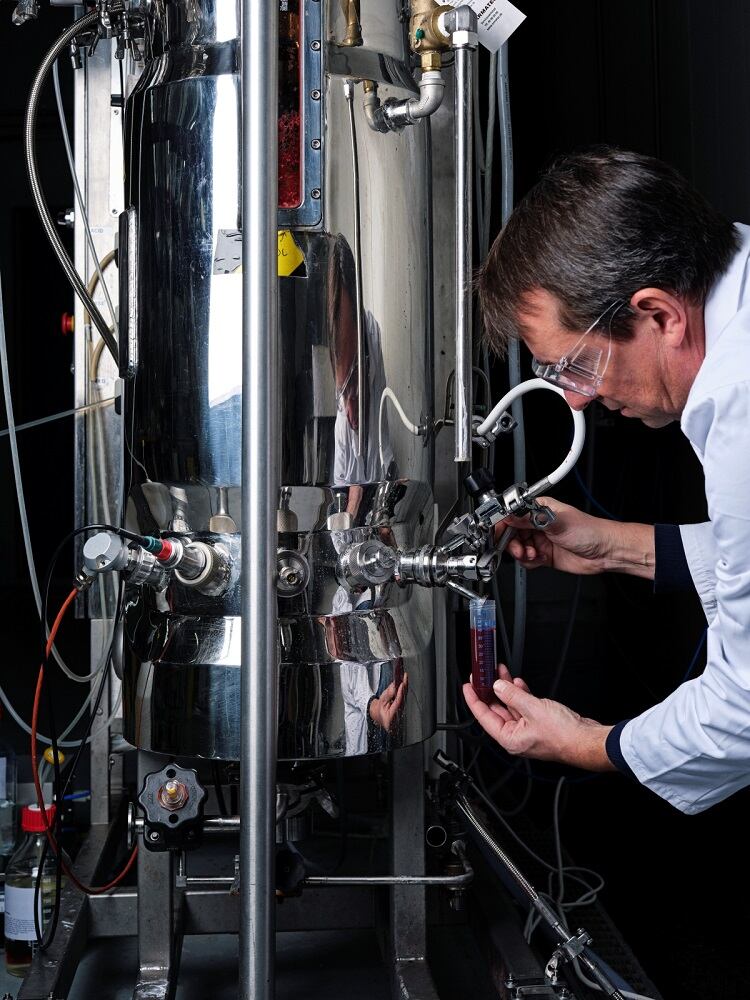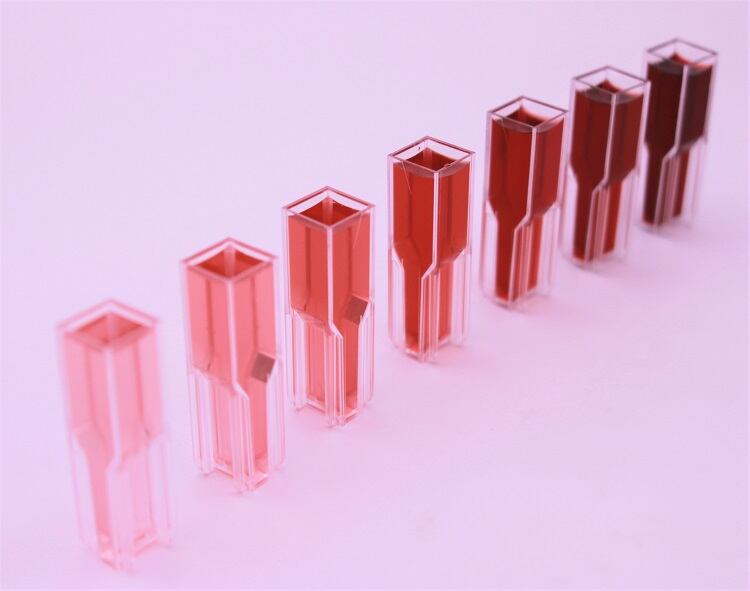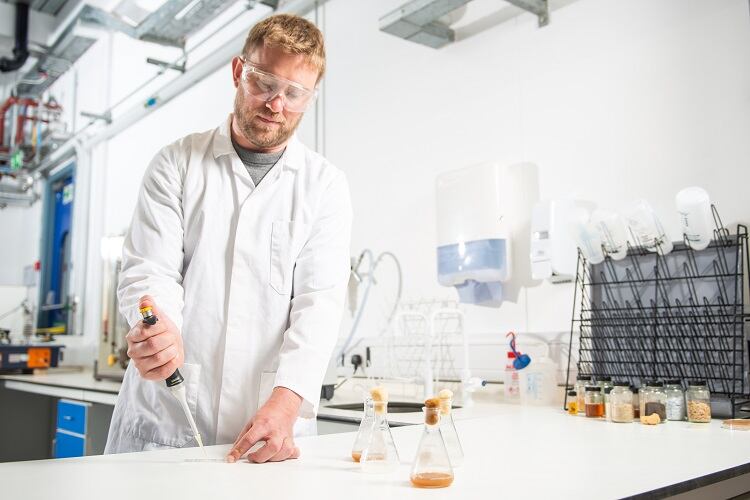Chromologics has raised an additional €7.1m, bringing its series seed total to €12.6m. New investors include venture capital firm Thia Ventures and the investment arm of Danish ingredients major Döhler, Döhler Ventures.
The investment will be used to accelerate commercialisation of the start-up’s flagship product, a ‘natural’ red food colour produced via precision fermentation.
Solving colour challenges with precision fermentation
Chromologics was founded in 2017 by co-founders CEO Gerit Tolborg and CTO Anders Ødum. During Tolborg’s PhD at the Technical University of Denmark, she discovered a red azaphilone molecule called Talarene.
“This is the active colour ingredient in our natural food colour, Natu.Red,” the CEO explained. “This molecule is red and can thus be used to create red and orange food colouring. We are working on expanding our colour portfolio towards yellow and pink colours.”
The natural red food colouring is produced using fungal fermentation. Leveraging proprietary fermentation protocol, the fungus and colourant are separated, and the colourant processed.
Producing food colours this way has the potential to address several issues facing the conventional food colouring market. Colourings from carmine – a dye derived from cochineal insects – does not meet demand for animal-free products. And plant-based food colourings risk losing stability when faced with light, pH and temperature variances. Further, natural colourings are known to be more expensive than synthetic alternatives.
Chromologics says its proprietary fermentation production method is environment-friendly and can ensure a cost competitive and sustainable supply to food and beverage manufacturers.

Natu.Red is pH- and temperature stable, tasteless, water soluble and vegan, and aims to replace carmine, betanine (derived from beets), and synthetic colouring Red 40.
Döhler to support process and product development
Over the past five years, Tolborg and Ødum have built Chromologics from a university spin-out into a company with its own lab and pilot production facilities.
Having successfully scaled up to produce the first several hundred kilograms of Natu.Red, strategic investment from food ingredients supplier Döhler is welcome. “Döhler is supporting Chromologics in both process and product development,” Tolborg revealed. “During their investment due diligence, they have tested Natu.Red in several applications.”
The next stage will see Chromologics work on its precise go-to-market strategy, we were told, and the company will ‘of course’ consider Döhler as a distributor.
From Döhler’s perspective, the company said it looks forward to supporting Chromologics as it develops and commercialises a range of natural food colouring. “We see competitive advantage in this type of sustainable natural ingredient,” said Rodrigo Hortega at Döhler Ventures.

“The timing is right, and we are prepared to offer the full network and know-how of the Döhler Group.”
First stop: Europe
As a novel ingredient, Chromologics’ active colour Talarene will be registered as a novel food colour. “We just kicked off regulatory approval for the European and US markets,” Tolborg told this publication. “We expect to launch in the European market first.”
Once approved by the relevant regulatory agencies, the DTU spin-out’s beachhead market will be plant-based applications, where the use of insect-derived carmine is off the table.
But other categories, too, are in the pipeline. “Thanks to our competitive price, we will also target the dairy and confectionery industry.
“Since the meat industry is also looking to reduce nitrate in processed meat applications, our colour Natu.Red could provide a healthier colour alternative without compromising on performance.”
This is not the first time Döhler Ventures has invested in lab-grown alternatives to conventional food ingredients. Late last year, Döhler’s investment arm backed UK-based Clean Food Group: a start-up developing a bio-equivalent cultivated alternative to palm oil.



